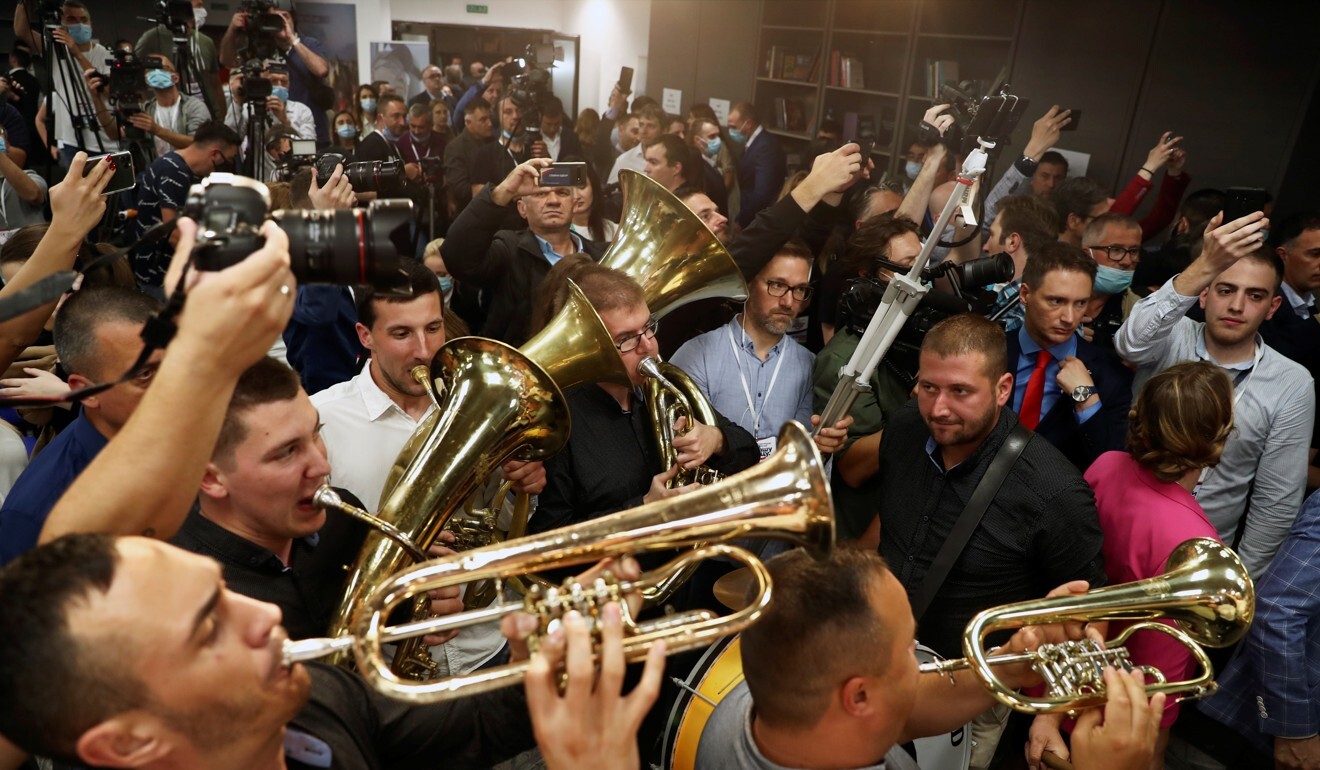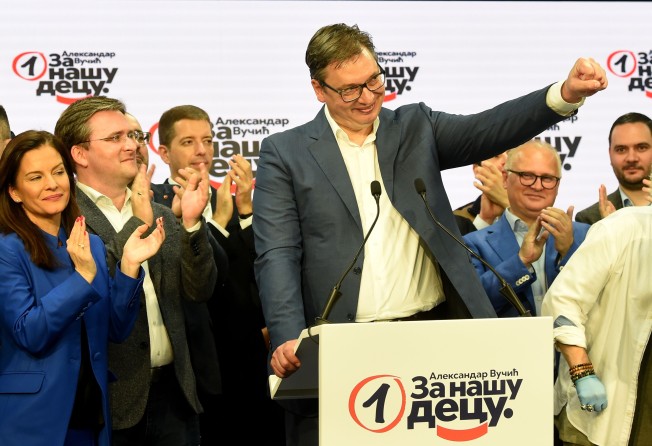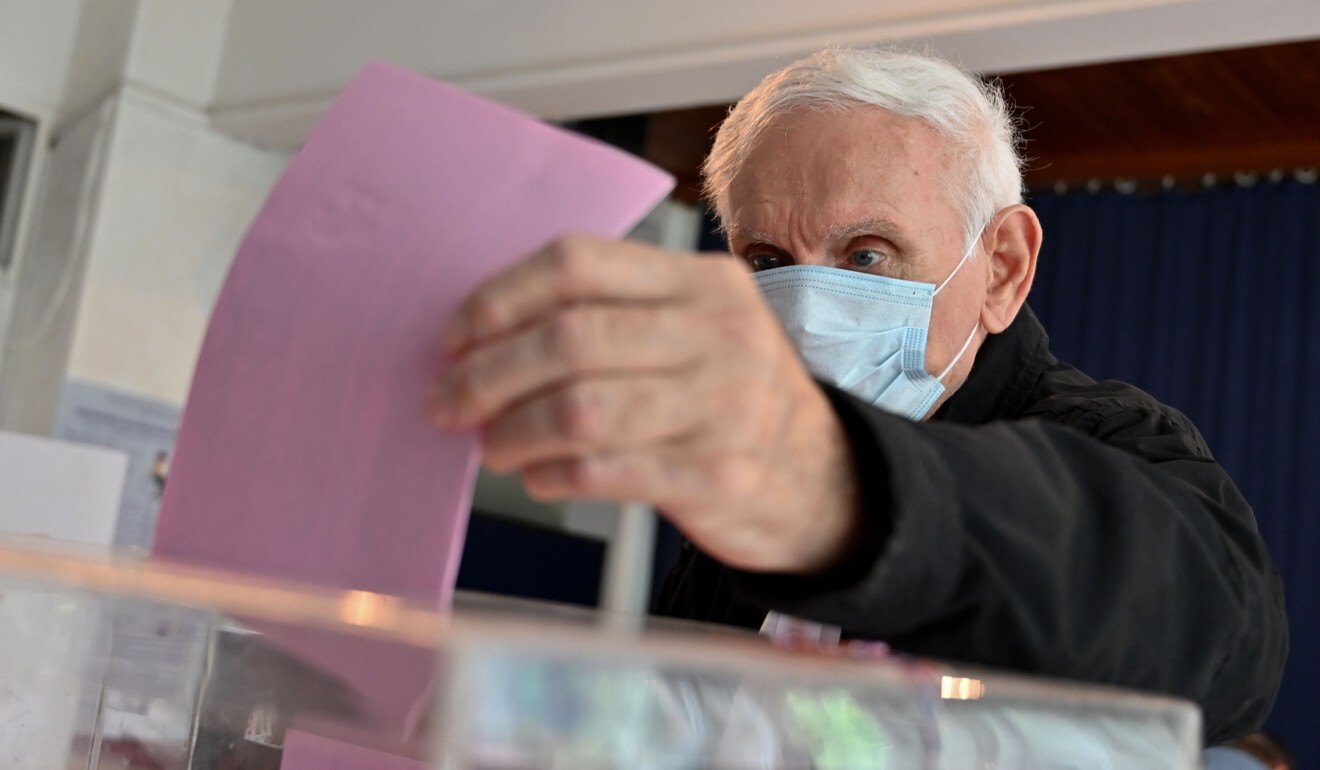
Serbia’s ruling party crushes rivals in vote as global powers watch
- Win gives President Aleksandar Vucic renewed mandate to tackle issues from post-coronavirus recovery to mending ties with Kosovo and quest for EU membership
- Landslide victory followed election boycott by biggest opposition parties over unfair conditions

Serbia’s president led his party to a landslide victory in coronavirus-tinged general elections, securing a crushing majority in a country that is at the centre of a struggle for influence among global powers.
Aleksandar Vucic’s Serbian Progressive Party won 63.4 per cent of Sunday’s general election, enough to take sufficient seats in parliament to change any law, according to preliminary results from IPSOS. The pollster’s results came from a simultaneous count made alongside electoral authorities.
The win will allow him to tighten his political dominance over the former Yugoslav republic that began when he transformed himself from nationalist firebrand to a pro-European Union prime minister in 2014.
It also renews the government’s mandate to tackle thorny issues ranging from trying to lead the economy into a post-virus recovery to mending ties with Kosovo and navigating the uncertain path toward European Union membership.

In second place behind the Progressives was the Socialist Party of Foreign Minister Ivica Dacic with 10.3 per cent, according to IPSOS. At least one more party is expected to have cleared the 3 per cent threshold to enter parliament.
Buoyed by state media coverage of his government’s efforts to quash Serbia’s Covid-19 outbreak and engagements with leaders in the US, China and Russia, Vucic overcame weeks of protests against his government by tens of thousands of Serbs who took to their balconies during the lockdown.
His victory was also probably amplified by an election boycott from the biggest opposition parties, which refused to field candidates, saying Vucic’s ruling Serbian Progressive Party denied them access to media and undermined conditions for a free-and-fair vote.
Since switching to the job of president in 2017, Vucic has transformed the role from a largely ceremonial post into Serbia’s main executive position.
During that time he has reined in public finances, attracted foreign investment, and raised wages. Still, living standards have languished virtually unchanged at about two-fifths of the EU average for the last decade, and Freedom House, a largely US-government funded think tank that monitors democracy, ranks Serbia as only “partly free.”
Vucic’s biggest struggle has arguably been his effort to lead the country of 7 million into the EU. The main hurdle to that is Kosovo, which declared independence a decade after the two nations fought a war that ended when a Nato-led bombing campaign forced Serb troops out.
While Brussels has demanded that Serbia mend ties with its neighbour as a condition for entry, Vucic has spent years preventing Kosovo from gaining international recognition, a position backed by a majority of Serbs.
He has vowed to never consider it a separate and independent entity, a position backed by Russia and China. Those nations have pressed to increase their influence in Serbia via investment and support in the United Nations on Kosovo, taking advantage of lax engagement from the EU during a decade of repeated economic and political crises.

But pressure is building for a deal. US President Donald Trump’s envoy, Richard Grenell, has persuaded Vucic to head to the White House on June 27 to meet his Kosovo counterpart to discuss economic cooperation.
Before that, he will meet the EU’s envoy to the Balkans, who is trying to restart EU-led talks that stalled in 2018, then he will head to Russia to meet his ally Vladimir Putin.
With a new mandate, Vucic and his next government – whose prime minister he has not yet named – will have to sort things out with Pristina if it wants to make good on the president’s pledge to join the bloc sometime this decade.